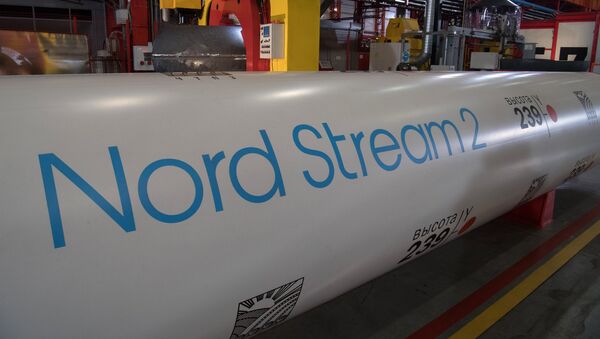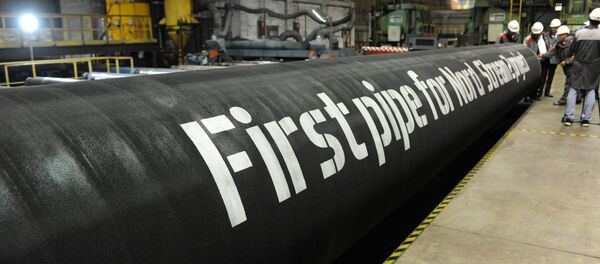According to Kommersant newspaper, the amendments, in particular, prescribe that not only the European Commission, but also a committee of representatives from all EU countries will have to give consent to make a project exempt from EU norms, which would make the procedure lengthy and difficult.
READ MORE: Tensions Over Nord Stream 2 Block US Business Participation — AmCham Russia
The media outlet, citing informed sources, said that the current version of the text was final as it would be "undoubtedly approved" at the re-vote at the Council of the EU on February 20.
In practice, the amendments mean that the Nord Stream 2 pipeline must have an operator that is independent of Gazprom and that third parties must receive access to the facility. Currently, the Nord Stream 2 AG consortium is fully responsible for the construction and operation of the pipeline.
According to the amendments to the gas directive, Germany, as the EU country where the gas pipeline leads to, may conclude an intergovernmental agreement with Russia on exceptions to the directive. The process will require interaction with the European Commission at two stages. First, Brussels must grant Germany permission to negotiate the intergovernmental agreement with Russia, and then, after the talks are done, permission to sign the agreement. In both cases, the commission needs to make a decision within 90 days but has the right to request additional information, thereby delaying deadlines. The commission may also make recommendations to Germany regarding the text of the treaty and the inclusion of certain provisions.
READ MORE: German Economy Ministry Denies Making Deal With US on Nord Stream 2
Last week, representatives of the Council of the European Union, the European Commission and the European Parliament reached an agreement on amendments to the EU gas directive that would allow extending internal EU market regulations to pipelines to and from non-EU countries. This would include Nord Stream 2, which is expected to carry gas from Russia to Europe.
Nord Stream 2 is a joint venture of Russian gas giant Gazprom and five European companies. It aims to deliver 55 billion cubic meters (1.9 trillion cubic feet) of Russian natural gas annually to the European Union. The pipeline project has been welcomed by some countries in Europe and opposed by the others, who raise concerns over the alleged danger of Europe's dependence on Russia and the subsequent diminished transit role of Ukraine.


